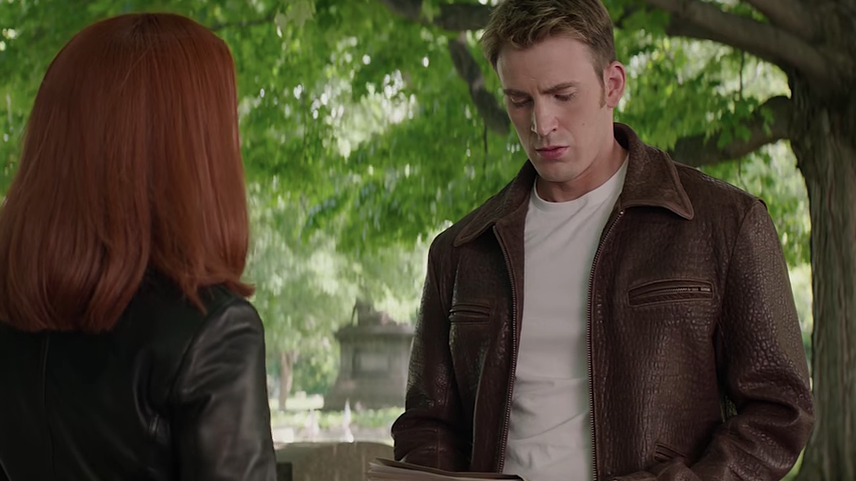“Speaks backward, Yoda does!” was a quip I first heard from a friend my freshman year of college. I can still picture her delighted face and the pleased general agreement and quote-storm her comment brought. Since then, the joke would re-appear about once a year in my life until it achieved the overplayed contempt of a Coldplay single.
Here’s the thing: Speaks backward, Yoda doesn’t!
Or rather: Dialect is not achieved through simple substitution formulas. Speech patterns are organic and fluid.
So let’s look at Yoda’s speech patterns. When we first meet Yoda as a character, he opens with, “Feel like what?” which is an incomplete sentence, but completely in tune with standard American sentence construction. His next line introduces the famous Backward Yoda Speech, inverting “Put away your weapon” as “Away put your weapon.”
Immediately followed by the traditional subject-verb form, “I mean you no harm.”
Here’s my thesis: If I had the full transcripts of all Yoda’s scenes, I bet I could find the percentage of his speech with ‘inverted’ structure and see that percentage rise over time as fandom meme (everyone ‘knows how Yoda talks’) became more important (in the writers’ or editors’ eyes) than simply using Yoda’s dialect to tell his story.
Empire Strikes Back has Yoda’s dialect for story purposes – Yoda is pretending to be some silly yokel to test Luke’s kindness and patience, so he plays up his accent knowing it may trigger stereotypes and prejudices. Also the dialect establishes Yoda as exotic.
That… can be problematic. More on that later.
Thesis: After Empire, subsequent writers have exaggerated Yoda’s dialect to the point where it damages the script, the character, and scene pacing.
In my initial critique of “The Last Jedi,” one thing I found grating was Yoda’s scene. I said again and again that it was too long and repeated too much information. On a second viewing, I found that the play of exposition in the scene isn’t convoluted, actually – it’s the dialect. Because almost every single line is Verb-Subject, I have to stop and interpret, moving the pieces into their order, however subconsciously, to get the meaning. Every added second, every bit of work you make a viewer (or reader) do should have a purpose. Here, its only purpose is to make what could have been a great scene one of my least favorite scenes in the movie.
Don’t even get me started on the prequels. “Around the enemy a perimeter make” ?!?! YOU ARE IN A BATTLE SPEAK IN SIMPLE DECLARATIVE SENTENCES LIKE WE KNOW YOU CAN.
Oops. Got myself started. Sorry.
Marie’s Rule of Dialect is, when I write a character who uses dialect, after my first draft I go in and remove every other instance of dialectic speech I put in. Why? Because the reader only needs an occassional hint to fill in the voice on their own and every instance of dialect slows reading comprehension. You don’t want to make the reader work.
So why use dialect at all? Well, to set location, to show where a character comes from. Me, I just love playing with different ways people talk. But like all embellishments on prose, you have to stop at the point where you lose the reader – unless you’re being deliberately obtuse for some reason. (Like, say, the character is concealing their identity? Hmmmm?)
Now, about that exoticism. Standard American English speakers do occasionally invert the subject and verb construction. (Though more often we muck around with subject-object.) It’s a poetic construction, left over from the days when English liked to contort its words to fit the stress patterns of French in formal poetry. So this form of speech sounds, to us, formal, formalizing. It slows our expectations of action.
Another group of English speakers who frequently invert subject and verb are native Hindi speakers, whose language uses verb-subject order and who are very likely to speak English (because colonialism.)
Yoda’s speech pattern might be saved by the grace of Frank Oz alone from being a straight up parody of an Indian Yogi. Think about it – Lucas has not exactly shown himself to be Mr. Cultural Sensitivity when it comes to creature designs and names. (And I know he didn’t write or direct Empire but I wonder if he had input?) Star Wars is rife with “metaphorical minorities” – as though, faced with creating aliens, one could just say “Okay these are the Korean aliens” and call it a day. Thankfully, Frank Oz’s voice is so… singular it isn’t immediately recognizable as a racial stereotype. (Or is it? I could be blind on this.)
Quick aside: Rules for basing an Alien Race on a Real Human Culture You Are Not A Part Of:
- DON’T
Another language that uses Verb-Subject construction is Japanese, and this could again be intentional, as the sword-wielding, loose-robe-wearing Jedi have more than one strong nod to the Samurai – or Samurai-as-seen-through-western-view-of-Kurosawa-pictures.
Either way, Yoda’s dialect jives with our stereotype of a wise old teacher — specifically a wise old teacher of a mysticism borrowed from another culture.
— eeeeeeeeeyeaaaaah we’re treading on a lot of cultural appropriation here. Cultural appropriation as ancient as Victorian Jujitsu clubs.
Here’s another fact about dialect: the native speakers of that dialect, very often, will feel they are being made fun of when they see a character speaking heavily in that dialect, especially if the character is stereotyped in other ways.
Or to attack this from another angle: “I’m from Cleveland, I don’t got no accent.”
When you speak dialect, you aren’t noticing your little patterns of speech, in your head you are speaking perfectly clearly. It blew me away when my husband pointed out that I was habitually leaving “to be” verbs out of my speech. “My hair needs washed,” I’d say. “Your hair needs to be washed,” he’d say. I’d frown and reply, “That’s what I said.”
Because it is what I said. This isn’t a question of education. It’s a difficult step outside oneself to hear one’s own speech as a stranger would. I had a college degree before I learned to hear my own dialect.
So: think about what you are doing when you “exoticize” a character through dialect. You are presenting them more EXTERNALLY. You are putting them on display, othering them. Another word could be “objectifying.”
So, again, the way to avoid that is to treat all characters with autonomy and respect, avoid stereotypes. Also, soften dialect. Give the occassional clue, but otherwise present the ideas as the character intends them, not necessarily a verbatim record of what comes out of their mouth.
Am I saying “never use dialect?” Perish the thought! I adore dialect. I love the ways our different backgrounds embroider our speech patterns, like our parents weaving a thread through the tapestry of our speech.
Just, jeeeezus, have Yoda talk forwards at least two thirds of the time. You are killing me, Disney!!


